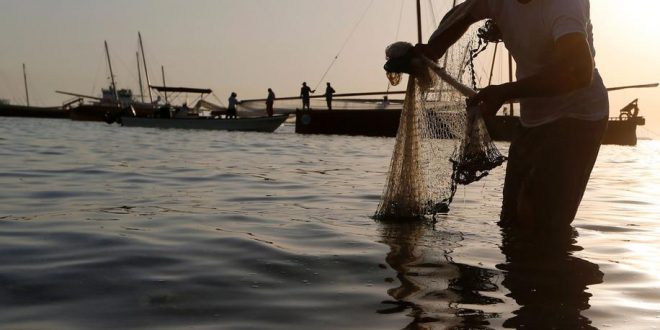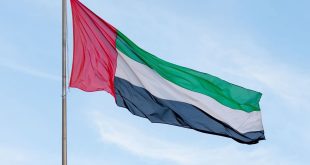In a sweeping effort to protect marine resources, the Ministry of Climate Change and Environment, MoCCAE, and the Environment Agency – Abu Dhabi, EAD, today unveiled the UAE National Framework for Sustainable Fisheries 2019-2030, building on the recently completed UAE Sustainable Fisheries Programme (2014-2018).
Launched at the World Ocean Summit 2019 that is currently underway in Abu Dhabi, the strategic action plan – slated for execution by 2030 – seeks to mitigate the effects of overfishing and establish an environmentally sustainable, economically viable and socially responsible fishing sector in the UAE.
The framework – the country’s first ever national recovery plan for fisheries – aims to achieve sustainable fisheries across UAE waters.
Key actions recommended include the implementation of management measures that will reduce pressure on fish stocks from the commercial and recreational fishing sectors, the enhancement of fisheries through the development of robust aquaculture research and programmes to support fish stock improvement, and the rehabilitation of marine habitats through the installation of artificial reefs as protected areas.
The framework’s 2030 timespan reflects the period fisheries will take to recover after adopting the appropriate measures. This benchmark is consistent with the global recovery rates of around 12 years.
Speaking on the framework, Dr. Thani bin Ahmed Al Zeyoudi, Minister of Climate Change and Environment, said, “At present, we are facing a twofold challenge – first, we are working to sustain our fisheries and allow them to replenish. At the same time, we have the responsibility of meeting the growing market demand for fish.
“The UAE National Framework for Sustainable Fisheries will help us strike a balance between the two priorities. This monumental step for our nation will enable us to preserve our long-standing fishing tradition for years to come. Together with EAD and key government authorities and in consultation with our fishing community, we are confident that this framework will guide us towards a sustainable future for the UAE’s fisheries sector.”
The new framework was developed in response to the results of the 2018 Fisheries Resources Assessment Survey and insights from over 300 members of the UAE fishing community.
The findings revealed that the country’s fish stocks are severely depleted due to overcapacity of the commercial and recreational fishing sectors. Specifically, three demersal indicator species – hamour (orange-spotted grouper), shaari (spangled emperor) and farsh (painted sweetlips) – have witnessed a significant decline to 10 percent of their adult (reproductive) stock size and are overexploited by up to five times the sustainable limit.
For her part, Dr. Shaikha Salem Al Dhaheri, Acting Secretary-General of EAD, noted, “Today marks a watershed in the protection and preservation of our marine environment and resources. Building on the vital insights we have gained from the UAE Sustainable Fisheries Programme, the UAE National Framework for Sustainable Fisheries will pave the way for collective and targeted action to conserve an ecosystem that has been and will remain an essential pillar of the past, present and future development of our nation.
“The World Ocean Summit provides an ideal platform to reaffirm our commitment to promoting sustainable and responsible practices among the fishing community. Together with its partners, EAD will continue to advance the national agenda to achieve environmental and economic sustainability across the country.”
Following the wrap-up of the UAE Sustainable Fisheries Programme, resulting in a better understanding of the challenges that need to be overcome, the UAE National Framework for Sustainable Fisheries sets out the 2030 vision and the actions required to achieve it. Implementation has already commenced with EAD engaging with the spearfishing subsector to discuss daily intake and boat limits based on species stock status, with further plans to involve the wider recreational and commercial.
 UAE BARQ برق الإمارات – نبضك
UAE BARQ برق الإمارات – نبضك


